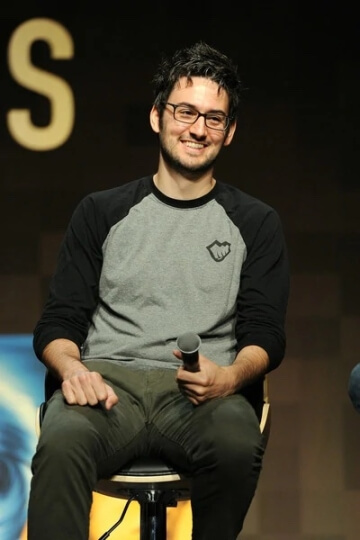Video games are about incremental progress. Even the best players get stymied and have to restart, using what they learned from previous attempts to progress to the next level.
Mark Yetter, A.B. '08 and game design director and Riot Games (Credit: Mark Yetter)
Mark Yetter, A.B. ’08, knows all about incremental progress — both in video games and professionally. An avid gamer as a child, it took him several tries to break into the video games industry after graduating with a computer science degree from the Harvard John A. Paulson School of Engineering and Applied Sciences (SEAS).
Yetter is now a game director at Riot Games. The company is best known for “League of Legends,” a battle arena game that for more than a decade has been one of the cornerstones of the eSports world of international competitive gaming. Yetter was a lead game designer and design director for “League of Legends,” and is currently game director for a massive multiplayer online role-playing game (MMORPG) set in the “League” universe.
Video games have always been more than just a game to Yetter. As a kid, playing “The Legend of Zelda: Ocarina of Time” was “a magical game experience.” While at SEAS, he fell in love with “World of Warcraft,” the highly successful 2004 MMORPG.
“This was a game that took my understanding and connection to the medium to the next level,” Yetter said. “Not only did I enjoy this, but I felt like there was some fulfillment that I achieved from this game. I made friends in this game. It felt meaningful to me in a way that wasn’t just a fun diversion.”
Yetter arrived at SEAS interested in computer science, but he didn’t know how to break into the gaming industry. Instead, he focused on learning the fundamentals of software engineering and programming, skills he could apply to a range of computer science jobs.
“It was a certainty that understanding how to program and make software would be relevant in one form or another, and that’s how I imagined my path into the industry would be,” he said. “In a lot of ways, it was also safer because it was a cross-industry skillset. It was useful for where I wanted to go, but it was also useful for a lot of things.”
Companies like Google and Microsoft actively recruited at Harvard while Yetter was there, but not video games companies. Gaming has taken on a bigger presence at SEAS since then, including the Harvard Gamesdev student organization, but back then Yetter struggled to find a way into the industry he wanted.
“The game industry is kind of opaque,” Yetter said. “It’s not huge, it’s very competitive, and I’d never talked to a successful major industry game designer when I was in school.”
His first attempt was to apply to a few specific software companies that made games he liked. Nothing came of that approach, so instead his first two jobs were with Microsoft and then Virtu Financial, working on an in-game advertising platform for the former and stock-trading algorithms for the latter.
The second time he tried to break into gaming, he used a website to generate a list of every company with openings, then applied for more than 100 positions.
“I didn’t even know half the studios, and many of them were making games that weren’t for me,” he said. “But it was certainly the right approach, because through this process I got a couple interviews, and a couple game design and software engineering opportunities. All with studios that were smaller or lesser-known, but I saw that this was how you actually had to do it. The foot in the door was more important than anything.”
That foot in the door came from TimeGate Studios, where he was a designer for a game in the “Section 8” first-person shooter franchise. More opportunities would come from there, as in 2012 Treyarch hired him as a multiplayer game designer for the highly successful “Call of Duty: Black Ops II.”
Riot brought him in to work on “League of Legends” in 2013, and he’s been there ever since.
“As a designer working on a team, you’re probably spending a large chunk of your time, 30 to 40 percent, doing theoretical design, thinking about your design and iterating on your design process and feedback,” he said. “Then you’re spending another large chunk, another 30 percent, implementing it, making prototypes or shipping something into the game. The remaining 30 percent is sliced up. You’re doing collaboration meetings with artists, programmers and sound designers for putting the pieces together. You’re playtesting regularly, which is the place where you get your work validated or beat up by other people in a productive way, or you’re giving a second opinion to the other team members.”
His computer science education at SEAS continues to benefit him even as he takes on larger and larger roles.
“The core fundamentals never go away,” he said. “If you’re making any software or game, it’s so important to the process of doing it well to understand performance, how to make high-performing code, good architecture and data management. There is always the path to making it work, but there’s also the much better path to something really elegant, powerful and efficient, and games are always trying to push that.”
Yetter has worked on critical gameplay elements for “League of Legends.” During his nine years, the game’s popularity has skyrocketed, with more than 180 million active players, and multiple international tournaments and world championships whose prize money totals in the millions.
Directing a new MMORPG is just one way Yetter continues to level up at Riot Games.
Press Contact
Matt Goisman | mgoisman@g.harvard.edu
